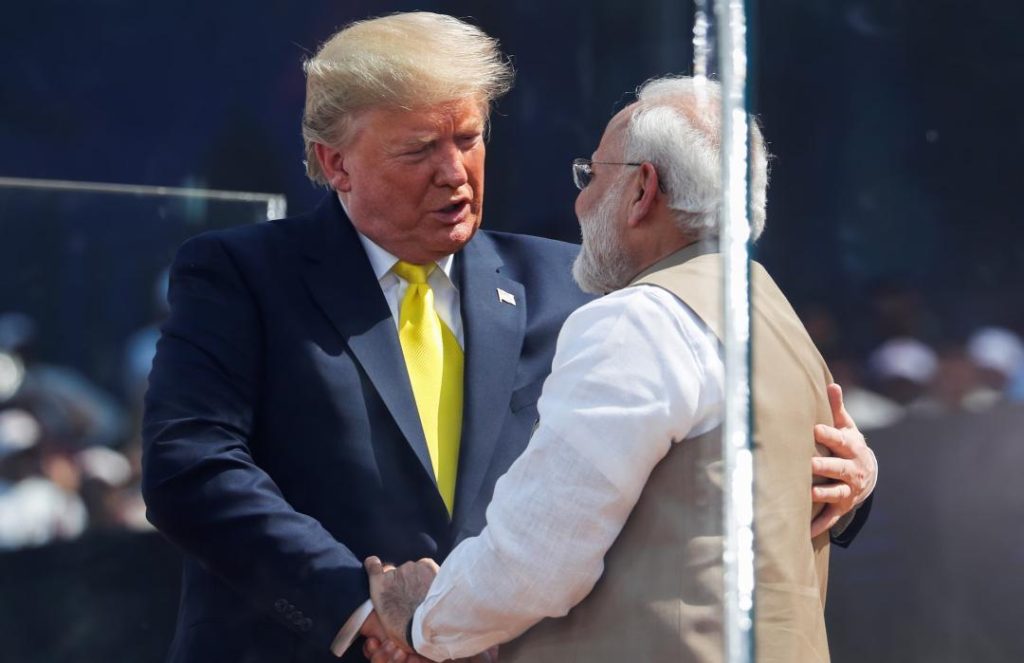
Title: Trump & PM Modi should hold direct talks on ‘urgent priority’: Ex-US envoy Nikki Haley
As the world grapples with the rise of China, the partnership between India and the United States has emerged as a crucial counterbalance to Beijing’s growing influence. In a bid to strengthen this partnership, former US Ambassador to the United Nations Nikki Haley has called for direct talks between President Donald Trump and Prime Minister Narendra Modi to resolve the ongoing tensions between the two nations.
Haley, a Republican and a close ally of Trump, minced no words in describing the India-US partnership as a “no-brainer” in the face of China’s growing assertiveness. She stressed that the most urgent priority should be to reverse the downward spiral in ties between the two nations, which she believes can only be achieved through direct talks between the two leaders.
In an interview with NDTV, Haley emphasized the need for the Trump administration and the Modi government to put aside their differences and engage in meaningful dialogue to address the pressing issues that have been plaguing their relationship. She pointed out that the imposition of 50% tariffs on Indian goods by the US is a major sticking point that needs to be resolved through direct talks between the two leaders.
“The most urgent priority should be to reverse the downward spiral, which will require direct talks between President Trump and PM Modi,” Haley said. “They need to sit down and have a conversation about what’s going on, and what can be done to get back on track.”
Haley’s call for direct talks between Trump and Modi comes at a time when the India-US relationship is facing significant challenges. The imposition of 50% tariffs on Indian goods by the US has sparked widespread resentment in India, with many viewing it as an attack on the country’s sovereignty and economic interests.
The tariffs, which were imposed in June, are part of a broader trade dispute between the two nations that has been ongoing for several months. The US has accused India of not doing enough to open up its markets to American goods, while India has retaliated by imposing tariffs on a range of US goods, including almonds, apples, and motorcycles.
Despite the tensions, Haley remains optimistic about the potential for the India-US partnership to grow stronger in the years to come. She pointed out that the two nations share a common goal of promoting democracy and open markets, and that their partnership can play a crucial role in countering China’s growing influence in the region.
“The India-US partnership is a no-brainer,” Haley said. “We share a common vision for a free and open Indo-Pacific, and our partnership can help to promote stability and security in the region.”
Haley also praised the Modi government’s efforts to promote economic reforms and increase foreign investment in India. She pointed out that India’s economy has been growing rapidly in recent years, and that the country has immense potential for growth and development.
“India has made great progress in recent years, and I think the Modi government has done a great job of promoting economic reforms and increasing foreign investment,” Haley said. “I think there’s tremendous potential for growth and development in India, and I believe that the India-US partnership can play a key role in helping to unlock that potential.”
In conclusion, Haley’s call for direct talks between Trump and Modi is a timely reminder of the need for the two nations to work together to strengthen their partnership and counter China’s growing influence in the region. While the challenges facing the India-US relationship are significant, Haley remains optimistic about the potential for the two nations to work together to achieve their shared goals.
As the world looks to the future, it is clear that the India-US partnership will play a crucial role in shaping the global landscape. With the two nations working together, they can promote democracy, free trade, and stability in the region, and help to counter the rising power of China.
Sources:



